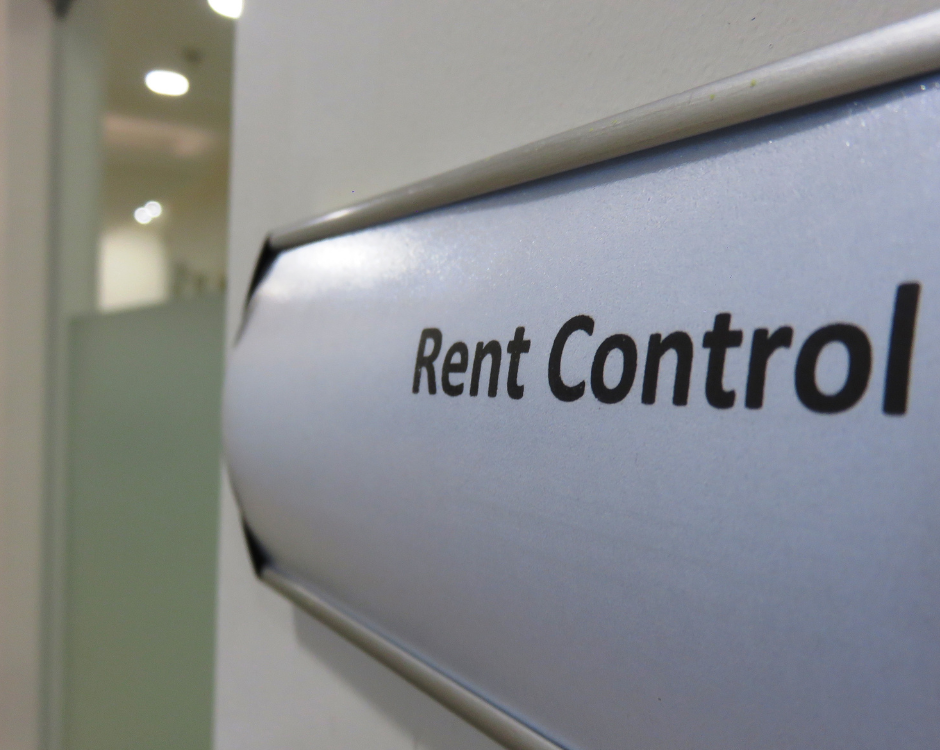Aurum and Sharpe was founded in 2017 by me, Bryan Hanley, and one of my best friends, Rudy Renelique. After many years working at big banks like Chase, and Wells Fargo, we decided we could bring value to a mortgage market that was starving for independent thinkers. So we started Aurum and Sharpe over a phone call about financing a multi-family deal in Brooklyn. Since starting this business we’ve been on many adventures from financing a $20 million portfolio of single families, to meeting the President of Rwanda and Finance Minister of Namibia.

Rudy has gone on to start his own firm, Overture Capital, while I’ve stayed on to grow Aurum and Sharpe. Aurum is the original Latin word for gold (that’s why the periodic table has it listed at Au). We chose it because we think of our word as “as good as Gold.” And in that vein, we want to add value to every customer we come in contact with. Our promise is that by working with us, you will increase your Freedom, Purpose, and Fulfillment.
Our process includes learning your overall objectives and where you want to go in your life so that we make sure your financing enhances your life and gets you to your destination much faster. What that means though, is that we are not like every other broker on the street that will only do a surface level amount of learning about you, your life, and your motivations. For us, that is Gold. We want to learn how we can tailor your financing so that you thrive in your life! So before we talk about rates, terms, or anything else, we are going to try and figure out how to add value through financing.
We know this approach isn’t for everyone. But if this resonates with you, lets talk: 917 475 6207
Less well known about me is that I’ve also served as the Head of Marketing at a Y combinator Cyber Security Startup (raised their value by creating winning marketing, twice), served as a marketing specialist, data management contractor for the Cyber Security Infrastructure Security Agency (CISA, which is a division of the United States Department Of Homeland Security), wrote and published “The House Hustle” for Black Entrepreneurs, wear two five-fold Crosses, hold a degree in Africana Studies from Rutgers University (I’ll always be a Scarlet Knight), and am former active firefighter.
Feel free to verify any of this on Linkedin:


Live Free! Break the Chains!
- Filter by
- Categories
- Tags
- Authors
- Show all
- All
- Africa
- Angola
- Angola
- Application Process
- appraisal
- benefits
- Best of Brooklyn
- BRRR
- cash out refinance
- Cash Reserves
- commercial loan
- commercial real estate
- cooking
- coop
- coops
- Côte d’Ivoire
- CREF
- crypto
- dscr loa
- dscr loan
- dscr mortgage
- ECOWAS
- Francophone
- French
- Gabon
- housing cost
- Infrastructure
- interest
- investment property
- investment property cash out refinance
- investments
- Investor
- Ivory Coast
- LLC
- LLC Mortgage
- Loans
- mortgage
- mortgage faq
- Mortgage in an LLC
- mortgage rates
- New York
- Non-qm
- NYC
- office condos
- Portfolio
- portuguese
- Property
- Property Portfolio
- real estate
- real estate FAQ
- refinance
- refinancing
- rent
- rental property
- Senegal
- stocks
- Uncategorized
- underlying co-op mortgage
- All
- 000
- 000 Mortgage
- 000 Mortgage properties
- 000.
- 1031 Exchange
- 15 or 30 Year Mortgage for Investment Property
- 15-year Mortgage Loan Term
- 3 Signs you are ready to buy an Investment Property
- 30-year Mortgage Loan Term
- 5 boros
- Accumulate
- Advantages of a 15-year Mortgage
- Advantages of a 30-year Mortgage
- Advantages of taking a Mortgage Loan for your Investment Property
- Africa
- Afrique
- Agent
- Alternatives to HARP- Private Lender and FHA Streamline Refinance Program
- and Stocks as Investments
- Angola
- Annual Salary Requirements for a $2 Million
- Annual Salary Requirements to afford over $1 million House
- apartment building
- apartment investors
- Application Process for Investment Property Loans
- Applying for an investment property mortgage
- Applying for an Investment Property Mortgage in New York
- appraisal
- Are Investment property rates above Standard rates?
- Are Mortgage Payments On a Rental Property Tax Deductible?
- Are the current Mortgage Rates historically low?
- Are You Ready to Invest in Rental Properties?
- Aurum and Sharpe for Your Non-QM Loans
- Banks that Refinance Investment Property
- Benefits of a Commercial Real Estate Loan
- Benefits of converting a Primary Residence to a Rental Property
- Benefits of Financing Multiple Rental Properties
- Benefits of Refinancing
- Benefits of Refinancing an Investment Property
- Benefits of Refinancing Your Rental Properties
- Benefits of transferring title to an LLC?
- Benin
- Best Mortgage Lenders for Investment Property Mortgages (including non-QM)
- Best Mortgage Rates for Investment Property
- best of brooklyn
- Best Refinancing Investment Property Loans of 2022
- Best way to get a Mortgage for a Home Over $2
- Best way to get a Mortgage for Investment Properties over $1
- Best way to get a Mortgage for Investment Properties over $10
- Best way to get a Mortgage for Investment Properties over $2
- Best way to get a Mortgage for Investment Properties over $3
- Best way to get a mortgage for investment properties over $5
- Buying a House with a Commercial Loan
- Buying Investment Properties In New York
- calculate
- Can I Deduct Mortgage Interest On Rental Property?
- Can I refinance all my properties into one loan?
- Can I refinance from my personal name into an LLC?
- Can I Refinance My Rental Property Under HARP?
- Can you Deduct Mortgage Interest on Investment Property?
- Can you finance a 10 million dollar mortgage with an SBA 504?
- Can you get a $10 million mortgage with a non-QM loan?
- Can You Transfer Your Property to an LLC If You Have a Mortgage on the Property?
- Can you use a Commercial Loan to buy a house?
- cap rate
- capital
- Cash Reserves
- Categories of Properties Qualified for Mortgage Interest Deduction
- Challenges to Financing Multiple Properties at Once
- Characteristics of Commercial Loans
- closing costs
- co-op
- co-op financing guide
- commercial
- commercial mortgage
- commercial property
- commercial real estate
- Commercial real estate loans
- commerical mortgage
- Common Deductible Interest Payments
- Common Mistakes First-Time Real Estate Investors Must Avoid
- Comparing Primary Homes and Investment Property Loan Rates
- Comparing the different investment property loans
- Complicated mortgage
- Cons of Investing in Cryptocurrency
- Cons of Investing in Real Estate
- Cons of Investing in Stocks
- Cons of refinancing investment properties
- Converting Primary Residence to Rental Property Mortgage
- coop
- coops
- Costs of creating and operating an LLC
- Côte d’Ivoire
- Credit Score Requirements
- cross collateralization
- Current Investment Property Mortgage Rates
- Current Mortgage Rates on Investment Properties
- Current Rental Property Mortgage Rates
- Debt service coverage ratio
- Deducting Interest on Rental Property
- Digital Currencies
- Disadvantages of 30-year Mortgage Term
- Disadvantages of a 15-Year Mortgage
- Divisions of your Monthly Mortgage Statement
- Documents Needed to Finance a Mortgage under an LLC
- Does Refinancing after Buying a House Affect Your Credit Score?
- Does your mortgage change if you rent?
- Down Payment Requirements on a $1 Million Home
- Drawbacks to Converting your primary residence to an Investment Property
- DSCR
- dscr loan
- dscr mortgage
- Eight Steps to follow before turning a Home into a Rental
- equity
- Evolution of investment property mortgage rates
- Examples of Mortgage Lenders with The Best Rates
- Expenses to Obtain a Mortgage
- Factors That Affect Interest Rates on Primary Residences and Investment Properties
- Factors to Consider Before Buying an Investment Property
- Factors to Consider Before Making an Investment
- Factors to Consider when Choosing a Loan Term
- finance
- finances
- financing
- Financing a $5 million commercial investment property
- Financing a $5 million Investment property with a jumbo loan
- Financing an Investment Property with a Non-QM Loan
- Financing Investment Properties
- Financing Multiple Properties: How Many Properties Can You Refinance at the Same Time?
- Financing Options for an Investment Property under LLC
- Fix and Flip Properties
- Francophone
- freddie mac
- funding
- gain
- Getting a Mortgage for 5 to 10 Properties
- Getting a Mortgage for Investment Properties over $3
- Getting an investment property mortgage
- global debt service coverage ratio
- Goals
- Growth
- gse
- How are current investment property rates calculated?
- How Aurum and Sharpe can help you get Non-QM Mortgages for Investment Property
- How Can Aurum and Sharpe Help You with Refinancing?
- How can refinancing help?
- How do I get the Best Rates for my Rental Property?
- How do I get the most out of cash when refinancing my investment property?
- How do Investment Property Mortgage Rates differ from Residential Property Mortgage Rates?
- How Does Real Estate Investment Compare to Investing in Stocks or Crypto
- How High Are Mortgage Rates for Investment Properties?
- How long do I have to wait to refinance after buying property cash?
- How Many Houses Can You Own?
- How Many Properties Can You Refinance at the Same Time?
- How much higher are mortgage rates for investment properties?
- How Much Is Your Minimum Cash Reserves?
- How soon can you refinance a home after purchase?
- How soon can you rent a house after buying it?
- How to Apply for a Mortgage for a Rental Property
- How to Apply for a Rental Property Mortgage
- How to Apply for Cash-Out Refinance
- How to Boost Your Chances of Qualifying for an Investment Loan
- How to Calculate Investment Property Loan Rates
- How to Carry Out a Cash-Out Refinance on a Rental Property
- How to Cash-out Refinance Investment on Your Property
- How to Cash-out Refinance Investment on Your Property: A Step-by-step Guide
- How to Cash-Out Refinance on Your Investment Property
- How to choose a bank to refinance your Investment Property
- How to choose an Investment Property Loan
- How to Choose The Right Investment Mortgage Broker
- How to Claim the Mortgage Interest Deduction
- How to Compare Mortgage Rates
- How to Consolidate
- How to get a jumbo loan for a $10 million investment property
- How to Get a Lower Investment Property Loan Rate
- How to get a lower investment property mortgage rate
- How to get a lower mortgage rate for your investment property
- How to Get a Mortgage for a Rental Property
- How to Get a Mortgage Loan of over 3 Million Dollar
- How to Get a Mortgage over $1 Million
- How to get better rates on Investment Property Mortgages
- How to get the best mortgage rates
- How to get the best rates on jumbo loans
- How to keep rental property mortgage rates low
- How to Lower the Loan Interest Rates for Rental Properties
- How to Make Money from Home Equity
- How to Measure Rental Property Performance
- How to Qualify for a Loan for an Investment Property?
- How To Reduce Your Investment Mortgage Interest Rate
- How to Refinance an Investment Property
- How to Refinance Your Investment Property
- How to Shop for A Mortgage With The Best Rate
- How to transfer property to an LLC
- Hypergrowth
- Increasing your chance of approval for an Investment Property Loan
- Industrial Real Estate
- Infraestrutura
- infrastructure
- infrastructures
- Interest in Construction Loans
- Interest on Loan Proceeds Kept in the Bank
- Interest on Money You Don't Legally Owe
- Interest Paid Through a Second Loan
- Interest Rates on Investment Properties
- Interest rates on Primary Residences
- Investir
- investment
- investment property
- investment property Cash out refinance
- Investment Property credit score Requirements
- Investment Property Loans
- Investment property mortgage
- Investment Property Mortgage Broker
- Investment Property Mortgage Loan Options and How They Operate
- Investment property mortgage options
- Investment property mortgage rates
- Investment Property Mortgage Rates Vs. Primary Residence
- Investment Property Refinance Rates In 2022
- investor
- Investors
- IRR
- Is it harder to get a Mortgage for an Investment Property?
- Is Refinancing Worth It?
- ivory coast
- Land
- lender
- lending
- Lengthy Underwriting Process
- Limits of conventional loans
- LLC
- loan
- loan application
- loan committee
- loans
- Loans for Multiple Investment Properties
- Loans on Rental Property Used for Non-Rental Purposes
- market
- Minimum Requirements for Investment Property Loans over 2 million Dollar
- Mixed-Use
- mortgage
- Mortgage for Rental Property Options
- mortgage in an LLC
- Mortgage Interest Deduction
- Mortgage Interest Deduction based on the use of your rental property
- Mortgage Interest Deduction Limitations
- Mortgage Lenders Requirements for an Investment Property of over 3 million Dollar
- Mortgage Loan for Investment Property
- Mortgage Rates for Investment Properties in New York
- Mortgage Rates on Investment Properties
- New York
- new york city
- Non-qm
- Non-QM Loan Application Steps
- non-qualified
- NYC
- Obtaining Loans to Finance Investment Properties
- office
- office condo
- Options for those who do not qualify for jumbo loans
- Other guidelines for rental and investment property loans
- Other Types of Deductions for Rental Properties
- Portfolio
- positive leverage
- Potential Downsides of Refinancing Investment Properties
- Potential drawbacks to holding real estate as an LLC?
- Practical Scenarios of 15 or 30- year Mortgage for Investment Property
- Preparing For an Investment Property Refinance
- property
- Pros and cons of transferring property to an LLC
- Pros of Investing in Cryptocurrency
- Pros of Investing in Real Estate
- Pros of Investing in Stocks
- qualifying for a mortgage
- real estate
- real estate investing
- real estate investor
- RealEstate Investor
- Reasons to Refinance Properties
- Reasons why you need to Consolidate Your Mortgages
- Reasons why you should refinance your Investment Property
- refinanace
- refinance
- refinance portfolo
- refinance underlying co-op mortgage
- Refinancing Investment Properties
- Refinancing Options
- rent control
- rent stabilization
- rent stabilized
- Rental Property Income Sources
- Rental Property Mortgage Rules
- Rental Property Mortgage vs. Home Mortgage
- Rental Property Operating Expenses to Remember
- Rental Property Refinancing Requirements
- Required Documentation needed to refinance an Investment Property
- Required Documents Needed to Get a Mortgage for a Rental Property
- Requirements for a $2 Million House
- Requirements for cash-out refinancing on investment properties
- Requirements for Getting a Mortgage For A Rental Property
- Requirements for Investment Property Loans
- Requirements for Mortgage for a Rental Property
- Requirements for Refinancing an Investment Property
- Requirements needed to get over $1
- Residential Capital Partners
- Residential Real Estate
- Retail Space
- Rules for refinancing conventional loans
- Rules for refinancing FHA loans
- Rules for refinancing jumbo loans
- Rules for refinancing USDA loans
- Rules for refinancing VA loans
- scale
- Scenarios Where Refinancing May Be Required
- senegal
- Should I get an LLC for Rental Property with a Mortgage?
- small balance
- Step-by-Step Guide on Securing a $1
- Step-by-step Guide to Applying for refinancing your Investment Properties
- Stocks vs. Real Estate vs. Crypto Stocks
- Tax consequences of transferring property to an LLC
- Tax implications of renting out your primary residence
- the cooperator
- The Definitive Guide to Refinancing Investment Properties
- The math behind rental and investment property loan rates
- The Minimum Income Requirements to Buy a $3 Million Home
- The Monthly Mortgage Payment on a $2 Million Home
- The Refinance Process
- The Tax Benefits of Mortgage Interest Deduction on a Rental Property
- Though?
- Tips for Getting Investment Property Loans
- Tips for Managing Your Housing Costs
- Tips on Refinancing Small Apartment Buildings
- Tips to get a good Investment Property Loan
- Togo
- Top New York cities to buy investment properties
- Type of Mortgage for a Rental Property
- Types of Commercial Lenders
- Types of Commercial Loans
- Types of Commercial Real Estate Loans (Including Non-Qm)
- Types of Investment Property Loans
- Types of Investment Property Mortgage Loans and their Rates
- Types of Mortgages for Investment Properties.
- Types of Non-QM Loans
- Types of Refinance Loans
- Types of rental property mortgages
- underlying co-op mortgage
- underlying coop mortgage
- Ways a Mortgage Broker Can Help You Shop for Investment Property
- What about Expenses Incurred When Obtaining a Mortgage?
- What About Financing a Rental Property
- What affects my investment property interest rate?
- What Affects Rental Property Interest Rates?
- What Affects Your Investment Property Interest Rate?
- What are commercial loans?
- What are current investment property mortgage rates?
- What Are Financing Options Available for Buying a Rental Property?
- What are investment properties?
- What are Mortgage Rates on Investment Properties?
- What Are Rental Property Interest Rates?
- What are some characteristics of investment property mortgages in New York?
- What are Stocks?
- What Are The Advantages Of Buying A House With An LLC?
- What are the Benefits of refinancing your Investment Property under HARP?
- What Are the Benefits of Using An Investment Mortgage Broker?
- What are the Current Investment Property Mortgage Rates?
- What are the current mortgage rates on investment properties in New York?
- What are the Current Mortgage Rates on Investment Properties?
- What Are The Disadvantages Of Buying an Investment Property With An LLC?
- What are the Downsides of HARP Refinancing Loan for Investment Property?
- What are the financial implications of a $10 million mortgage?
- What are the mortgage rates for investment properties?
- What are the options for an investment property mortgage?
- What are the Pros and Cons of Non-QM Loans?
- What are the requirements for investment property mortgages?
- What Are Today's Investment Property Mortgage Rates?
- What are today's investment property rates?
- What are Today's Rental Property Interest Rates?
- What Deductions Can I Claim for My Rental Property?
- What does refinancing mean?
- What factors affect investment property mortgage rates?
- What factors determine the mortgage rates?
- What If You Are Not Eligible for a Cash-Out Refinance?
- What If You Don’t Qualify for a Cash-out Refinance?
- What is a cash-out refinance?
- What is a Non-QM Loan?
- What is an LLC for a rental property?
- What Is An LLC?
- What is Cash-out Refinancing?
- What is Cryptocurrency?
- What Is Mortgage Underwriting?
- What is Real Estate Investment?
- What Is the Ideal Credit Score for Cash-Out Refinance?
- What makes Investment Property Loans harder to obtain?
- What other Loan Options are available?
- What qualifies as an Investment Property?
- What Qualifies as Mortgage Interest?
- What to consider before buying an investment property
- What to consider before buying an investment property?
- What to consider Before Refinancing
- What to consider before Refinancing an Investment Property
- What to Consider When Converting a Primary Residence into an Investment Property
- What to Know About Cash-out Refinance on Investment Properties
- What type of Loan is best for an Investment Property?
- What Types of Mortgages Are Available In New York
- What You Need to Know About Cash-Out Refinance
- When is it wise to refinance right away after purchasing a home?
- When is the best time to refinance my Investment Property?
- When is the Right Time to do a Cash-out Refinance?
- When should I Refinance My apartment building?
- When should you transfer property to an LLC?
- Where Can You Apply for a Non-QM Loan?
- Where to Get Investment Property Loans for Rentals
- Which banks Refinance Investment Properties?
- Which Commercial Real Estate Loan is right for your Business?
- which is The Best Loan for Investment Properties?
- Who are Qualified for the Non-QM Loans?
- Who are the best investment property mortgage providers?
- Who are the best lenders for Investment Property Mortgage loans and Non-QM loans?
- Who are the Best non-QM Lenders in 2022?
- Who are the Best Non-QM Lenders?
- Why Are Interest Rates Higher On Investment and Rental Properties?
- Why convert a Primary Residence to a Rental Property?
- Why get a cash-out refinance on your investment property?
- Why Is It Essential to Get A Mortgage Broker For Your Investment Property?
- Why should you Choose Aurum and Sharpe for your Non-QM Loans?
- Why should you Refinance your Rental Property?
- You can get an Investment Property Mortgage
- appraisal
- BRRR
- cash out refinance
- commercial loan
- commercial real estate
- investment property
- investment property cash out refinance
- Investor
- LLC
- LLC Mortgage
- Loans
- mortgage
- mortgage faq
- Mortgage in an LLC
- mortgage rates
- Non-qm
- Property
- Property Portfolio
- real estate
- real estate FAQ
- refinance
- refinancing
- rent
- rental property








